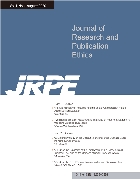

- P-ISSN
- E-ISSN2733-7146
- Frequency By-annually
- PublisherKorea Distribution Science Association (KODISA)
-
CCL

- Indexed byKCI Candidate
You can use ACOMS+ service with an AccessON integrated member account.
※ If you are already an AccessON integrated member, go back to the journal’s website and login.


